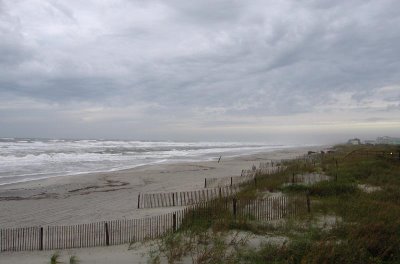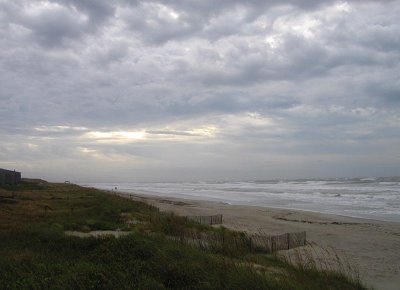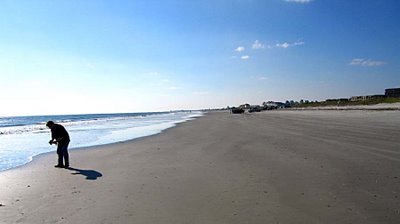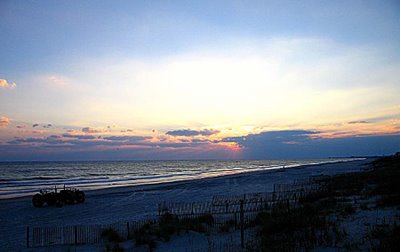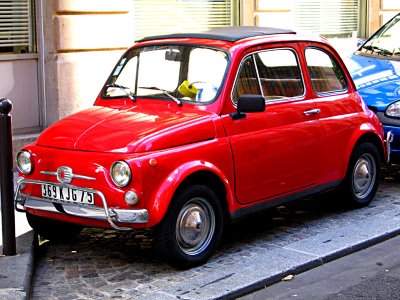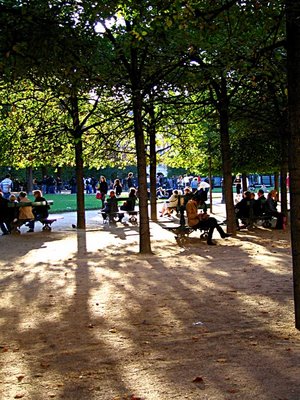31 October 2006
Signs of the times
After we put our clothes in the washer, she said: "Now the good news for you, which is the bad news for me, is that I am required to stay right here on the premises. That means that you are not!" So we could go for a walk while the wash cycle completed.
I liked the sign on the washer that said it was forbidden to put human beings in the machine. Why in the world do they need to put up such a warning?
30 October 2006
Changes in the weather
The second week, the weather turned chilly and clear. That was during the "mullet blow." Since the beach runs east-west in Carteret County, a north wind flattens out the water and there's almost no surf. The water is a deep blue, reflecting the color of the clear sky.
Last Friday morning, storm clouds rolled in from the southwest. When we woke up at about 7:00 a.m., we could hear the surf for the first time all week. We decided to walk down to the beach to see what the water looked like.
 Sunrise near Fort Macon in North Carolina, 27 October 2006
Sunrise near Fort Macon in North Carolina, 27 October 2006By noon, it started to rain. The wind got stronger and stronger as the day progressed. The storm turned into a real sou'wester (as opposed to a nor'easter). In a sou'wester, the wind is warm and it churns up the ocean, making the water rough and the surf impressive.
In the picture above, you can see that the prevailing wind on the Carteret County coast is from the southwest, because the sand fences are set up to catch sand blowing from that direction.
Contrast the picture above with the ones I took a day or two earlier from the same spot — especially this one.
We are in Alabama today, visiting good friends. By the end of the week we'll be in Illinois, and we will fly back to France from Chicago next Sunday.
27 October 2006
Pictures for yesterday's post
Cape Lookout is about 12 miles from where our condo is located. You can get there only by boat or helicopter.
The weather has turned cloudy and rain is supposed to begin falling by late afternoon. We are going to have strong winds, heavy rains, and thunderstorms tomorrow morning, according to the people who do weather forecasts.
26 October 2006
Jumpin' mullets for dinner
Last night we went out to dinner at Morehead City's largest, oldest, and best-known restaurant, the Sanitary Fish Market & Restaurant. One of the daily specials was jumping mullet, fried or broiled. That's what I had, fried, and it was delicious. It seemed like an appropriate choice.
This morning I walked out to the beach again. The trucks and fishermen were there, and the tractors. I talked to a fisherman. He told me they had just finished hauling in the net and then putting it back out. He said they netted a truckload of speckled trout, which was unexpected. I asked if they weren't really fishing for jumping mullets, and he said yes, they were. But you take what you get.
25 October 2006
More about mullets and mullet blows
The wind came out of the north for a second day yesterday, and it felt cold. We didn't go out until afternoon, when the sun had had a chance to warm things up a little. But it was definitely chilly as we tromped around in my boyhood neighborhood at 5:00 p.m., and we soon got back in the car to warm up.
We had had bright sun and a brisk breeze in the morning, which made for beautiful views of the ocean. The temperature was in the high 30s fahrenheit — moins de 5º C.
When we got back to the condo late yesterday afternoon, some downstairs neighbors were just coming out of their apartment. They had been keeping an eye on the fishermen down at the beach, they said. "Did they haul that net in yet?" I asked them. No, they said, but they hauled one in a little farther down the beach. They ended up netting 18,000 pounds of jumping mullets. That filled up the beds of four big pickup trucks.
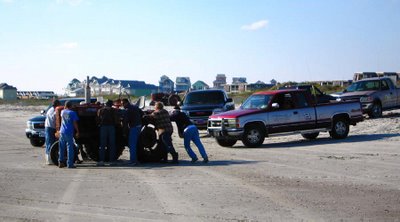 Fishermen rocking the tractor — don't ask me why. Just for fun, probably.
Fishermen rocking the tractor — don't ask me why. Just for fun, probably.More fun than just standing around on the beach.
What are jumping mullets? Here's one:
The jumping mullet is definitely not what is called a rouget or a rouget barbet in France — those are red fish. Maybe it's the grey mullet, but I don't really know.
One thing I've always heard about jumping mullets is that the only way to catch them is in a net. Evidently, they won't take bait and you therefore can't catch them on a hook. I wonder if that is really true, because on one site I found Mugil cepalus called "grey mullet" and read that it can be caught by hook and line.
There's another fish in N.C. waters that we call a sea mullet and that can be caught by hook and line. It's scientific name is Menticirrhus americanus, according to this good site showing the fish that live in North Carolina waters. I wonder if the fish called sea mullet here is not the same as the one called merlan in France? Here's what it looks like:
The same fish can have many different local names from region to region. From country to country and language to language, it's even harder to sort it all out.
I won't even try to speculate on the origin of certain terms applied to hairstyles.
24 October 2006
October on North Carolina's beaches
The North Carolina coast is where I grew up. In October, when the wind turns to the north and the first cool days of the fall make themselves felt, the people here in Carteret County, NC, describe the weather as a "mullet blow." The jumping mullets begin their coastal migration, and the local fisherman put out their nets to catch as many as they can.
They use tractors to haul in the nets, and they use shovels to throw as many mullet as they can from the nets into the beds of their pickup trucks or trailers. The nets were out today, and there were two tractors and seven or eight trucks out on the beach in front of the Southwinds complex.
Besides the trucks and tractors and their drivers, the only other people on the beach were a few late-season stragglers looking for seashells. And me and Walt, taking pictures.
A couple of hours after our mid-afternoon beach stroll, I walked back over to the shore to see if the nets had been hauled in. They hadn't. Maybe tomorrow. There was a beautiful sunset. It reminded me of Saint-Aignan sunsets, which I am eager to see again.
I wonder what the sunset at La Renaudière looked like today. We will return there two weeks from tomorrow...
22 October 2006
Hot-lanta!
We spent two nights in a condominium owned by friends who visited us in Saint-Aignan back in December 2004. We are very grateful to them. Here are a couple of pictures of the condo complex:
After spending a couple of hours walking through the aquarium, we drove over to the Westin Hotel, parked, and took the elevator and a set of stairs up to the bar on the 73rd floor. This is a view from there:
17 October 2006
Now in North Carolina
Since Sunday evening, we have been in North Carolina. The trip has been very busy and we are trying to rest up before our next leg, which is a trip to Atlanta starting Thursday morning.
Internet acces is not easy right now. We are sitting in an Internet café in Morehead City. The connection is wireless and works well, but we have just one computer so as I type Walt is just waiting. Not ideal.
I'll write more when I can. At least we haven't had any more encounters with the police. But my pollen allergies have flared up and I am congested and coughing.
12 October 2006
Americana
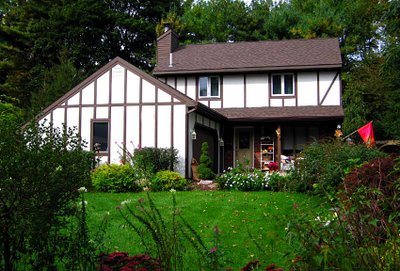

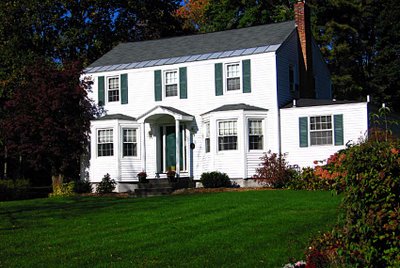
Here's a picture of a house out in the country in upstate New York, north of Albany. I think it is very austere and puritan in appearance.
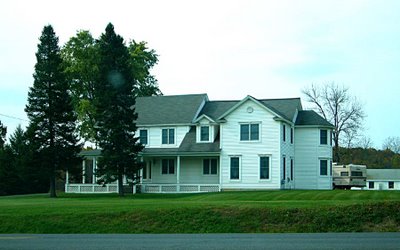
And here is a suburban Albany house where the homeowners are expressing their political opinions.
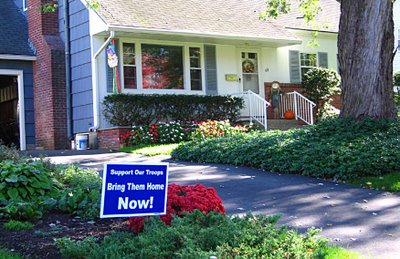
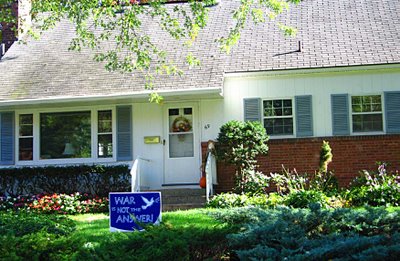
Finally, a sign I noticed in a window in downtown Albany.

11 October 2006
Arriving in New York City
We rode the Airtrain around the airport to the rental car center and picked up our Chevy Impala from Budget. We hadn't asked for a full-size car, but that was the car they wanted us to drive to Chicago for them. It has Illinois license plates on it.
To get out of New York City, we needed to drive up an expressway through the borough of Queens and cross a toll bridge before we could head north to Albany. All we had was a $50 bill, and we figured we would need some smaller bills for the toll. We also needed a phone card so that we could easily make calls within the U.S. The best idea seemed to be to get off the expressway, go into a neighborhood, and buy a phone card, just to break the $50 bill.
We decided to take Liberty Avenue east into Queens. We drove along for two or three miles. There were gas stations, car repair shops, and other businesses, but no drug stores or convenience shops like 7-11 that would be likely to sell phone cards.
We turned left at some point — 160th Avenue, maybe? — and drove north a mile or so. We ended up in the center of Jamaica, Queens, on Jamaica Avenue. It's a big commercial area, and there was a Walgreens drugstore. We found a place to park and this church was about the first thing I saw.
It's a typical American church in many ways: it occupies a building that probably wasn't built to be a church. Then again, maybe it was. But it doesn't look like a traditional European church, that's for sure.
Click on the picture, as usual, if you want to see an enlargement and read the text on the sign.
Somehow seeing a French-language church right away made me feel welcome in New York City.
In Hudson, NY, nearly three hours north of New York City, we took a long walk along the main street on Sunday afternoon. We stopped in a church to see the inside, and we were surprised to hear a service going on. It was about 2:00 p.m. The pastor or priest was speaking French. He was black, and the 30 or 40 people attending the service were also black. The priest read scripture in French and the congregation answered back in French.
They must be from Haiti, I told Walt. The service ended, and I listened to the adults talking among themselves. They were speaking Creole, which is based on French, Spanish, and English.
Meanwhile, Walt talked to a couple of teenage girls who were in attendance. They confirmed that their parent were Haitians. The girls spoke perfect American English. I walked up and said in French: "Alors tout le monde parle français ici?" — So everybody here speaks French? — and the girls eyes got wide. She stared at me for a second, and then beat a hasty retreat to rejoin her family. I guess she was shy — or shocked to hear somebody outside her community speaking French. It was cute.
We are hitting the road again this morning and we don't know whether we will be able to post blog entries tomorrow. We're headed up to Lake George and Fort Ticonderoga, a hour or two north of Albany, and will spend the night up there before returning to Albany tomorrow afternoon.
10 October 2006
Albany from the air and on the ground
Here are some pictures I took in Albany last week, well before the incident in which the suburban police stopped me and told me to cease and desist as far a picture-taking went. Those were not the Albany city cops. I guess suburbanites are a little touchy about people taking pictures in their neighborhoods.
Walt's grandmother told me yesterday that there was a gruesome axe murder in this suburb last year, and that the police pretty much botched the case. A young man killed his father and maimed his mother. He has been convicted, even though his mother refuses to believe her son is guilty. I guess some people in town are still nervous, and the police force is over-zealous as a result.
We arrived in Albany last Thursday night. Friday afternoon we went downtown to see the NY state government complex known as the Empire State Plaza. The first thing we did was ride the elevators up to the top floor observation deck of the 40-storey Erastus Corning Tower to get the lay of the land and take some photos.
Albany's city hall is the brown, red-rooved building with the square tower on it. It's just at the edge of the state government complex.
From the observation deck where I took this picture, there are views to the north, east, and south. This picture looks north. In the foreground is the building called "the egg," which is a performing arts center. The capitol is the building with red rooves, and off in the distance you can sort of see the Adirondack Mountains on the horizon.
Looking straight down from the top of tower, you see the famous New York logo. Not to mention a lot of freeways and cars.
The cathrdral is just south of the Empire State Plaza, which was built in the 1960s and '70s. A large neighborhood was razed to make space for the Plaza in the center of the city. I think that neighborhood had been home to a lot of immigrants from Italy and other parts of Europe.
Expanses of land and concrete devoted to automobile parking are a characteristic of American cities nowadays. There are parking lots in French towns and cities too, but not on this scale. South of the cathedral in Albany is a parking lot. The car defines the American city in a way it does not define European cities.
Walt says these big air vents are designed to let wind in to blow the pollution out of the big parking garages used by state workers.
The old South End neighborhood is separated from the Hudson River by an impressive network of highways. In this picture, the fall colors are nice. There are a lot of vacant lots where houses have been demolished. I don't think the South End is a particularly prosperous district.
The buildings in the South End have a lot of potential, but people don't want to live there any more, I guess. A lot of the old houses are boarded up.
This is a nice piece of street art. It's painted on a boarded up window in downtown Albany.
Lombardo's is an Albany institution, I think. We didn't try the restaurant, at least not yet.
Albany is a beautiful place in many ways, as you can see from these pictures. It's a small city that, compared to cities in the U.S. South and West, hasn't suffered a lot of suburban sprawl and development.
Of course, Albany has been losing population for years. A lot of people from the U.S. Northeast have been moving to places like the Carolinas and Florida and Arizona and California. As a result, my home state, North Carolina, for example, has changed and developed rapidly. The population has doubled since the 1960s. With all the good and the bad that that entails.
09 October 2006
Paris, nine more times
Then we drove over to the town of Hudson, looking for a place where we could have a salad or sandwich for lunch. We didn't have a lot of hope. Hudson, NY, however, turns out to be a very busy and attractive town. There are dozens of antique stores, galleries, and restaurants lining the main street. We had a wood-fired pizza for lunch in a place called Baba Louie's and we strolled around the town taking pictures and looking in shop windows for a couple of hours after lunch.
Despite the pleasant activities and beautiful weather, I still have Paris on my mind. Here are nine more pictures from our stroll around the City of Light last Wednesday, October 5.
Everything is bigger in America. Even the dogs. Paris dogs are tiny things. I don't think the one above is really guarding anything. I think it is waiting for somebody. Keeping watch. The little pooch pretty much ignored me as I took his picture. This was near the restaurant called Allard where we were going to have dinner that night.
Cars seem enormous in the U.S. Veritable boats. Some of them, however, are models that you also see in France. They don't look as big there, I guess, because the average size of cars in France is so much smaller. My Peugeot 206 is smaller than one of those new Minis you see around, I think. We are driving around in a Chevrolet Impala, and we are just floating. The roads are also very wide — twice as wide as most of the roads around Saint-Aignan.
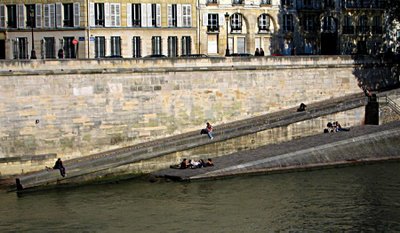
People lounging by the Seine on the Ile Saint-Louis in Paris
Not bad for an October afternoon. Les berges — the lower walkways along the Seine — around the Ile Saint-Louis, in the middle of Paris right behind Notre Dame, are a great place to spend a sunny hour or two.
 Typical Paris restaurant terrace, out on the sidewalk
Typical Paris restaurant terrace, out on the sidewalk
We walked from the Ile Saint-Louis up toward the Bastille. We thought we would go for a walk in the now-trendy 11th arrondissement, but we never made it that far. Next time we go to Paris, we are going to try to find a hotel or an apartment in the 11th so that we can explore the area more. It's less touristy than the Marais, the Latin Quarter, and the other neighborhoods right along the Seine.
 Little boy playing on the streets of Paris
Little boy playing on the streets of Paris
Just up the rue des Francs-Bourgeois, at the corner of the rue de Turenne, I saw this colorful grocery store display. The displays of fresh fruit and vegetables we saw in New York City when we arrived, and the ones we have seen around Albany, are not nearly as attractive.
 A boulangerie that has become a clothes shop in the Marais
A boulangerie that has become a clothes shop in the Marais
Just a little farther, there is this old bakery that is now occupied by a clothing store. It's nice that they preserved the baby blue storefront and the old signs.

Crossing the Seine near Notre Dame in late afternoon, 05 October 2006
Do you ever get the feeling, when you leave France and return to the U.S., that France really isn't there at all? That it was all just a dream? That's the way I feel now, and that's the way I've always felt when I return from France after spending time there. Now that I live there, the feeling is even stronger, paradoxically.
After the terrorist attacks of September 11, 2001 in New York and Washington, I had a very strong desire to return to Paris before somebody had a chance to destroy it. In my psyche, there developed a real fear that what happened in New York, or worse, could happen in Paris. What would I do if it weren't there any more? I guess that's one of the reasons I decided in 2003 to go live in France. And not to wait any more.
Speaking of terrorism and security issues, Walt and I were stopped by the police today in the Albany NY suburb where we are staying. We had gone out for a walk around our friends' neighborhood at about 10:30 a.m., and I was of course taking pictures. A lot of the houses are very beautiful, and they are very different from houses in France. Somebody called the police and reported me as a suspicious character. The policeman actually ran my ID through the police department computer to see if I was legitimate! He told me I could go on my way but that I shouldn't take any more pictures of houses. Do you think it's really illegal to take pictures when you are on a public right of way in America? Has it come to this? Are people this paranoid?
The policeman wasn't even polite or apologetic about it. It's creepy here. Not Albany, America. I don't like what's happened.



